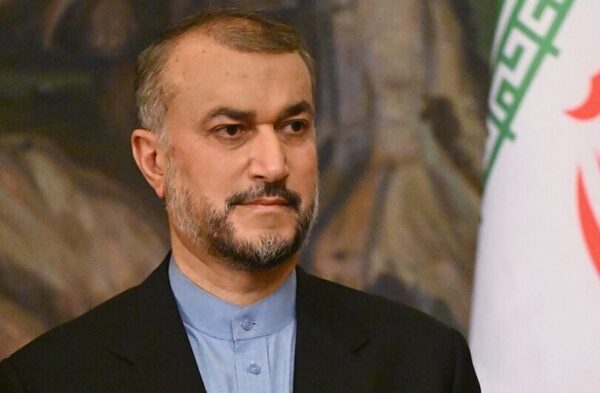Iran’s foreign minister, Hossein Amirabdollahian, reportedly expressed an interest in visiting the United States capital last week but was denied by its government.
The request, confirmed by US officials, came after an eventful trip to New York alongside President Ebrahim Raisi to take part in the United Nations General Assembly.
Why would he want to go to Washington?
Amirabdollahian had a busy week at the UN, meeting with a wide range of counterparts and reaching agreements with Djibouti and the Maldives to restore formal diplomatic relations.
After New York, he reportedly wanted to go to Washington, DC, to visit Iran’s consular interest section, which operates under the Pakistan flag in the absence of formal diplomatic relations, which were severed during a 444-day hostage crisis during Iran’s 1979 revolution.
US Department of State spokesperson Matthew Miller confirmed the request to reporters and said it was denied.
“We do have an obligation to allow Iranian officials and other officials of foreign governments to travel to New York for UN business, but we do not have an obligation to allow them to travel to Washington, DC,” he said.
“Given Iran’s wrongful detention of US citizens, given Iran’s state sponsorship of ‘terrorism’, we did not believe it was either appropriate or necessary in this instance to grant that request.”
The US has for years restricted the movement of Iranian officials due to lingering tensions between the two countries.
If Amirabdollahian had made the visit, it would have been the first by an Iranian foreign minister in 14 years.
Former US President Donald Trump, who abandoned the Iran nuclear deal in 2018 and reimposed harsh sanctions, took things further in 2019, when he confined Iranian officials to within a few blocks of New York City.
There were, however, reports that Trump tried to invite then-Iranian Foreign Minister Mohammad Javad Zarif to the White House that year but was turned down in the midst of souring relations after he had torpedoed the nuclear accord.
JavaScript if it is disabled in your browser.</div></div>
So is there a nuclear deal link?
Ever since the nuclear deal, formally known as the Joint Comprehensive Plan of Action (JCPOA), was signed eight years ago, it has been an ever-present topic when Iran and the US are concerned.
China, France, Germany, Russia and the United Kingdom were its other signatories, and all have been trying since 2021 to undo what Trump did through talks in Vienna and elsewhere.
But complications have arisen, leaving the deal in limbo, and there are a number of outstanding issues between Tehran and the International Atomic Energy Agency (IAEA) that are related to the accord.
An Iran-US prisoner exchange that initially seemed to be tied to the talks on the nuclear deal eventually materialised separately last week. The prisoner swap included releasing $6bn of Iranian money in South Korea that was frozen in compliance with US sanctions.
Even though Amirabdollahian, while in New York, met with Josep Borrell, the European Union’s foreign policy chief, who has acted as a coordinator of the nuclear talks, there was nothing further, including a speculated multination meeting on the JCPOA.
Iran has made no comment on Amirabdollahian’s request to go to Washington.
Where do things go from here?
As the US presidential election looms next year, President Joe Biden’s administration appears reluctant to officially rekindle the nuclear deal talks.
Secretary of State Anthony Blinken has also downplayed chances that the prisoner exchange could lead to broader diplomatic engagement, including the resumption of the nuclear talks.
For Iran, officials have for years emphasised that there will be no direct negotiations with the US.
However, the Amwaj.media website on Tuesday cited unnamed Iranian sources as saying that Supreme Leader Ayatollah Ali Khamenei had granted nuclear negotiators permission to enter direct talks with the US.
If true, this would signal an about-face for Iran after even talks on the nuclear deal were carried out through European and Arab intermediaries.
Iran has yet to make any comment about the report on direct talks.
Amirabdollahian told the state news website IRNA on Monday that Tehran continues to receive “positive” messages from the US on the nuclear deal but will judge them based on actions. He referred to a draft agreement reached last year that was never finalised.
Next month, a series of restrictions relating to Iran’s development of ballistic missiles are set to expire as part of the nuclear deal, but European powers have said they will maintain their own sanctions.
Al Jazeera


Leave a Reply
You must be logged in to post a comment.